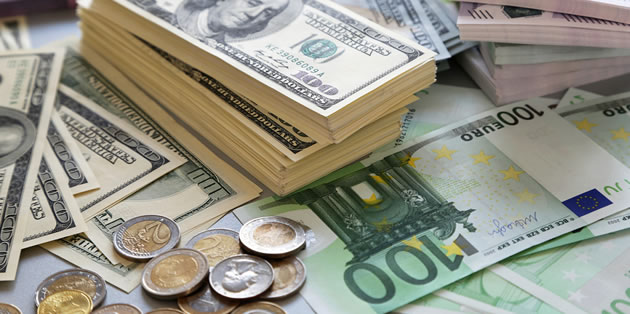EUR/USD Exchange Rate Rises after Italy Announces Revised Budget
The Euro US Dollar (EUR/USD) exchange rate is up today, and is currently trading at $1.1314 after Italy has reportedly finalised its redrafted budget to present to the European Commission (EC).
However, these gains have been somewhat muted by the President of the European Central Bank, Mario Draghi’s gloomy speech on Saturday, which focused on political upheaval throughout the EU.
Possibly hinting at Italy’s controversial budget and France’s recent budget concessions after the gilets jaunes protests, Draghi commented:
‘Without appropriate backstops at the euro area level, individual countries in a monetary union can be exposed to self-fulfilling dynamics in sovereign debt markets.’
USD, meanwhile, was strengthened last week on news that China had deescalated trade tensions by cutting tariffs on imported cars from the US, pulled back on its ‘Made in China 2025’ and agreed to buy more US oil.
However, these gains were clipped by last Friday’s release of US retail sales figures for November, which showed a decrease of 0.2% against October’s 1.1%.
These were also followed by poor manufacturing and services PMI figures, further lowering confidence in the ‘Greenback’.
Euro US Dollar (EUR/USD) Exchange Rate Up as Italy Budget Awaits EC Approval
The Euro (EUR) was strengthened against USD today on reports that Italy’s controversial budget has been agreed in ‘numbers and contents’, and is now awaiting the EC’s approval.
Italy’s Deputy Prime Minister Matteo Salvini said:
‘We have found an agreement on further fiscal reductions that probably will be appreciated by the EU.’
Today saw the release of the Eurozone Consumer Price Index for November, with the year-on-year results remaining static, while the monthly figures decreased to -0.2% against October’s 0.2%.
These were followed by the release of the trade balance figures for October, which showed an increase at €14.0bn against September’s €13.1bn.
USD/EUR Exchange Rate Dips as US-China Trade Tensions Cap Markets
US and China trade tensions eased off last week, followed by signs of a slowing Chinese economy which had traders flocking to the safe-haven status of the ‘Greenback’.
Donald Trump tweeted:
China just announced that their economy is growing much slower than anticipated because of our Trade War with them. They have just suspended U.S. Tariff Hikes. U.S. is doing very well. China wants to make a big and very comprehensive deal. It could happen, and rather soon!
— Donald J. Trump (@realDonaldTrump) December 14, 2018
However US markets have remained cautious after recent eruptions from China, steadying gains for the US Dollar (USD).
Today will see the release of the US NAHB housing market index figures for December, which are expected to remain static.
The publication of US NY Empire State manufacturing index figures for December, however, are expected to decrease.
Tomorrow, meanwhile, will see the US housing starts figures for November, which are expected to increase, perhaps providing a leg-up for the USD/EUR exchange rate.
These will also be followed by the US building permits figures for November which are expected to increase.
EUR/USD Outlook: Italy Budget and Brexit Remain in Focus
The EUR/USD exchange rate will likely be driven by political forces this week, with the EU facing numerous political upheavals simultaneously with Italy’s budget awaiting to be passed by the EC and the UK’s ongoing domestic Brexit negotiations.
USD will also be affected by any news of renewed geopolitical tensions, potentially strengthening if Italy’s budget revision is rejected by the EC.
Tomorrow may see the Euro (EUR) weaken with the release of Germany’s IFO expectations figures for December expected to decrease.
These will be followed by the IFO business climate for December which is also expected to decrease against last month’s figures.
Wednesday, meanwhile, will see the publication of the US Federal Reserve’s interest rate decision which will be occupying USD investors’ attention on any signs of bearishness.
This will be followed by the Federal Open Market Committee’s press conference, with any comments indicating a slowing US economy likely weakening the ‘Greenback’.



